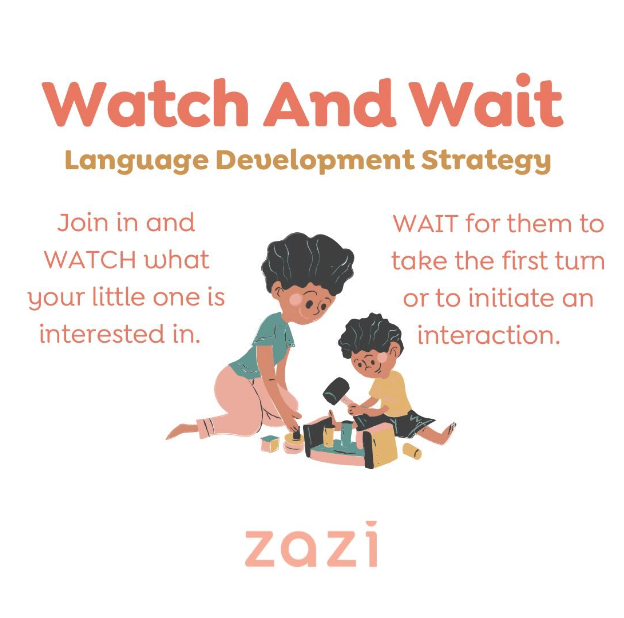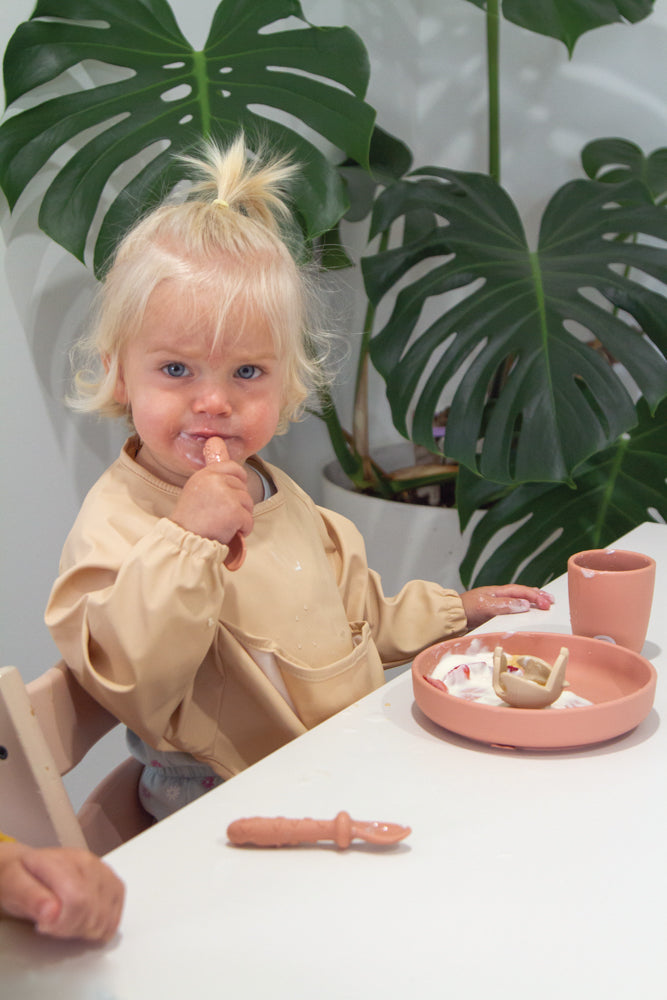The Power of Watching and Waiting

WATCH AND WAIT. language development strategy.
You probably think you already do this - but it’s harder than you think. Watching and waiting is SUCH an important tool to have in your language development toolkit and it’s more often than not something that speech therapists have to TEACH adults to do.
WHAT DO YOU MEAN?
We’re adults - so we already know everything and know exactly how to play with toys. We know how all the duplo goes together or how how cool it‘ll be to slide the cars down the ramp. But when we jump in there first, we’re ignoring what our child might naturally be drawn to. We might end up commenting on how fast the cars can drive when really your little one was interested in the wheels spinning. We’re all guns blazing building with the duplo but they want to explore the noise the bricks make when banged together. We know that children learn language quicker around things they’re interested in - but if we don’t watch and wait, we miss their interests and put all our comments and language-models in the wrong place. You can be the best teacher of language in the world but if you’re talking about something your child isn’t looking at - it’s probably falling on deaf ears.
HOW TO WATCH AND WAIT.
It’s going to take practice and you’ll have to be mindful about it. Get down to your child’s level, get close to whatever they’re playing with and simply watch. And wait. You’re waiting for them to make the first move - this might be saying something, showing you something, giving you something or looking at you to see whether you’re interested in what they’re doing. That’s them starting the interaction - think of it like setting the conversation topic. From there, you’re going to comment on what they’ve done or said, keeping on the same topic. Keep the interaction going. Waiting TEMPTS your little one to communicate with you, and you’ll probably be surprised with what they can do or say when you just give them the space to lead the way. Kids can get very used to us doing all the talking or leading all the play.
__
Share to a parent who’s working on supporting their little one to use more words.
No comments







